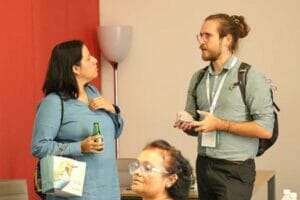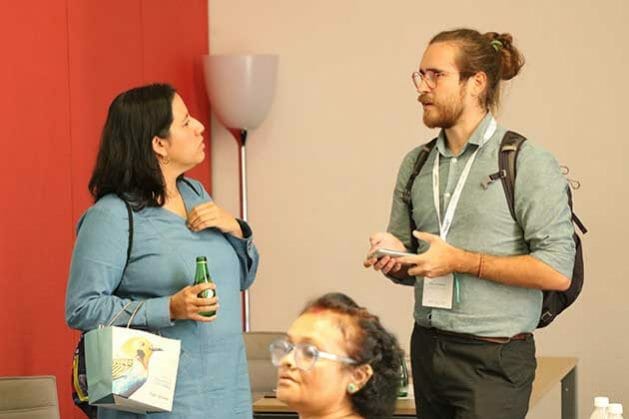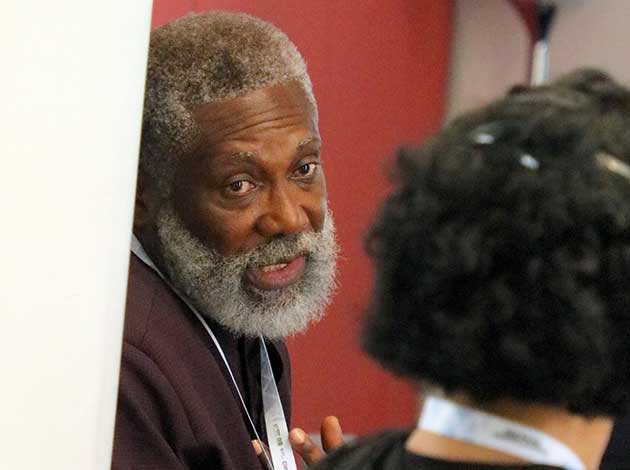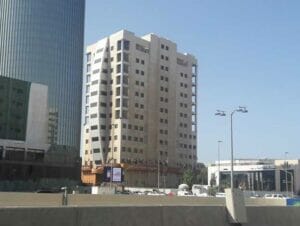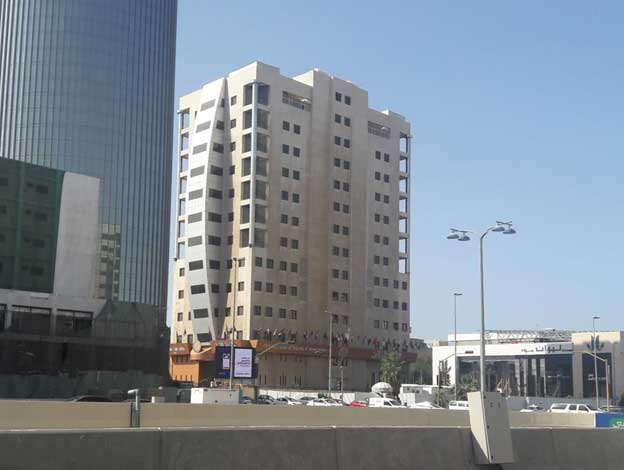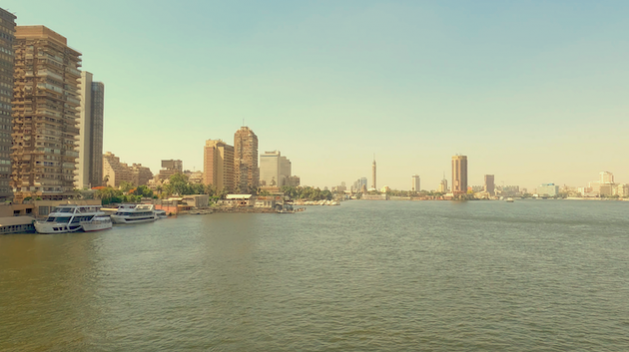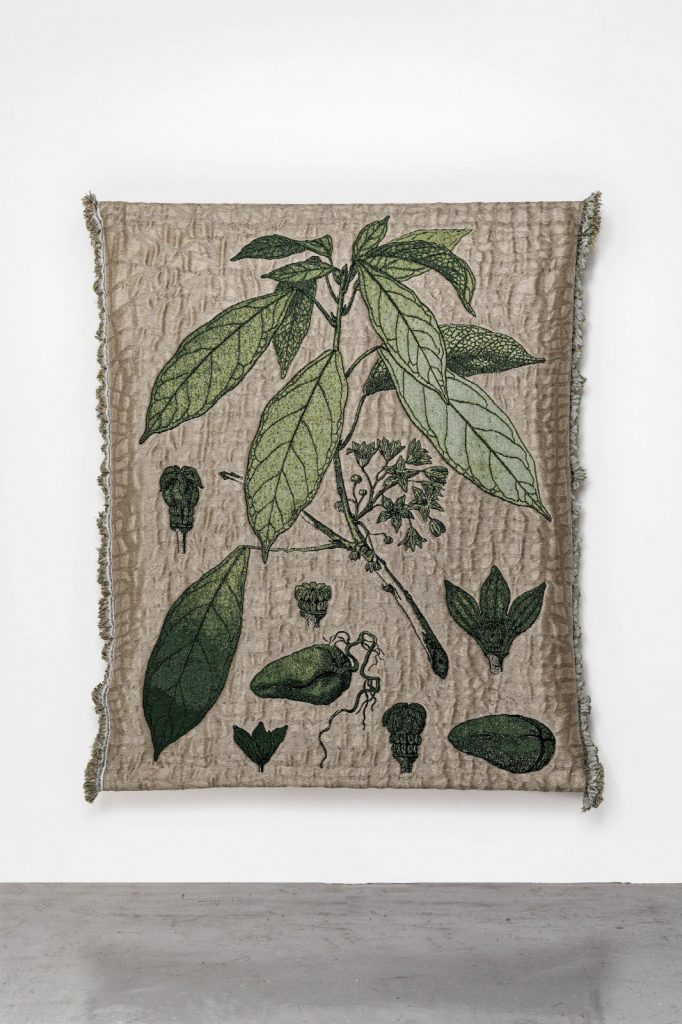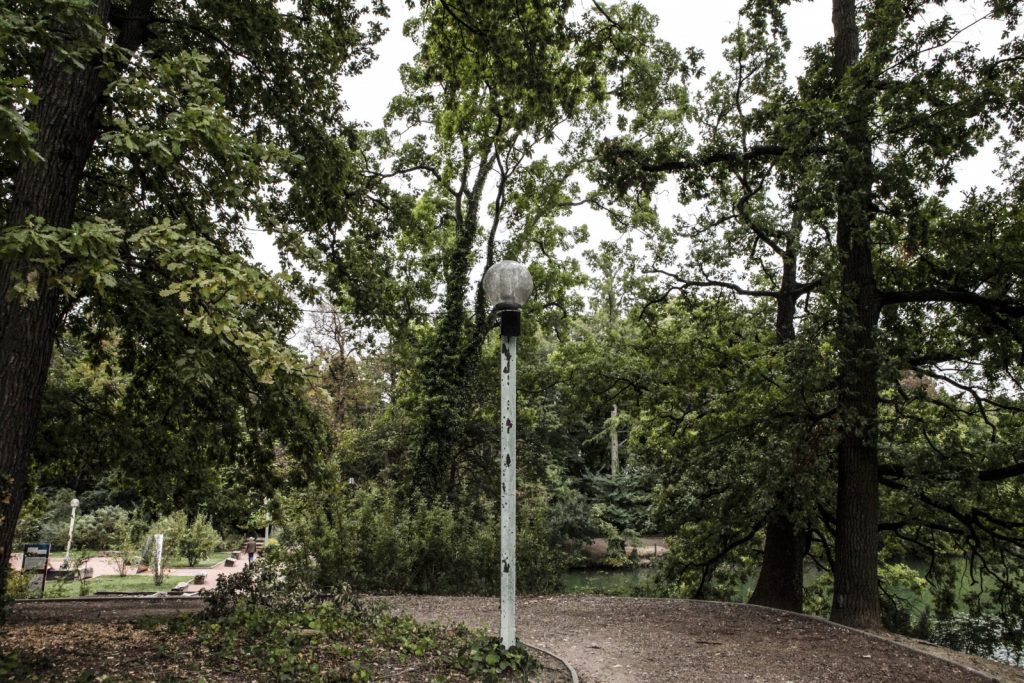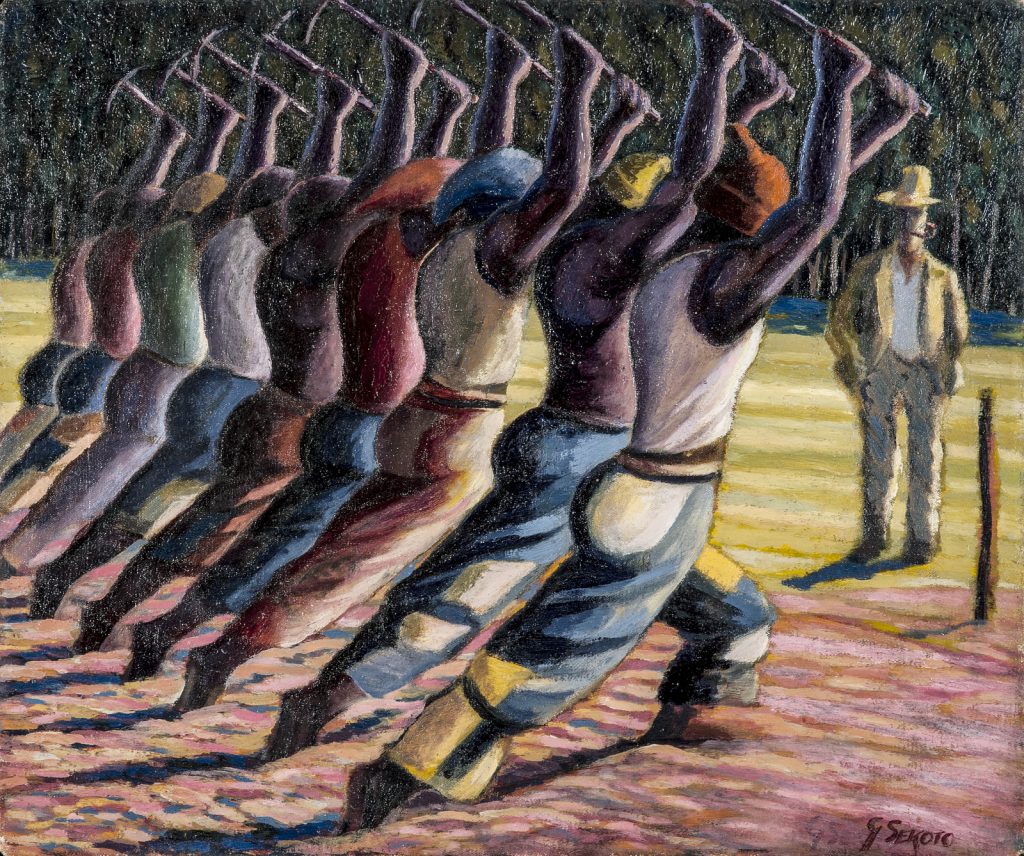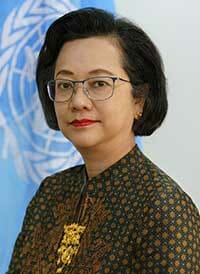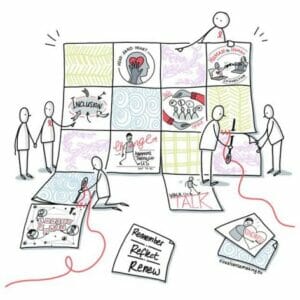
Civil Society, Democracy, Featured, Gender, Global, Global Governance, Headlines, Human Rights, TerraViva United Nations, Women in Politics
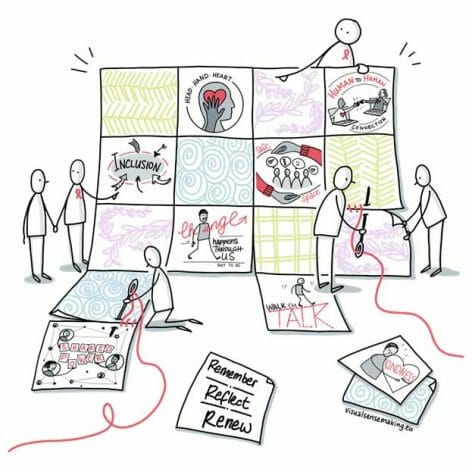
“The Quilt in the Making”. Credit: Claudia Steinau
– The organisational is personal. Every day since the two of us were asked back in 2020 to co-lead the process of culture transformation at UNAIDS, the United Nations organisation which drives global efforts to end AIDS, we have both felt at our very core how crucial it has been to get it right.
The mission of UNAIDS is vital to ensuring the health and human rights of every person. Staff and partners need to be confident of a supportive and empowering culture that will enable their work.
A 2018 Report by an Independent Expert Panel had shone a light on what were important organisational shortcomings, leading to a comprehensive set of changes in leadership, systems and crucially, culture.
As the Culture Transformation process has got underway, the COVID-19 pandemic has brought unprecedented shifts in work, and a resurgence of global protests, including from the Black Lives Matter movement and for women’s rights, have a generated an inspirational momentum for action to tackle intersectional injustice.
Reflecting almost three years of UNAIDS culture transformation work, what stands out in particular for the two of us is how the “outer work” has required so much “inner work”. We have needed to be, and to help others be, our full selves, and to acknowledge what we don’t yet know of each other’s experiences.
The process has deepened our appreciation of how our differences, both personally and professionally, are a key strength, enabling each situation, each process, to be seen from a combination of unique angles, and how equality is crucial in enabling all these to be brought forth.
Creating safe spaces for our colleagues to speak about their lived experiences was transformative. We asked ourselves and those around us tough and tender questions. We had colleagues tell us they felt heard for the first time. Brave conversations helped colleagues to connect and to advance the tangible changes that matter most to them.
We understood the need for a common reference framework for all of us at UNAIDS. This has led to a first set of feminist principles that guide our way forward.
Through the process, it became ever more clear to both of us that culture transformation begins at the personal level. As a Malawian woman of African-Asian heritage, living and working in Latin America at this time, intersecting identities and multiple cultural heritage became for Mumtaz the centre of personal reflections.
In leading conversations on decolonizing the HIV Response, Mumtaz’s own colonization was calling for attention. For Juliane, too, this has been powerful journey: as someone who has experienced sexual assault in the workplace, this work is deeply personal, driven by a determination to build safe workplaces for everyone, including by addressing inequalities and unhealthy power balances. Our intersectional feminist approach has brought our experiences to our work.
But this work has also highlighted that whilst the organisational is personal, so too the personal is often dependent on the organisational. Engaging with intersectional feminist principles at the personal level was not enough.
That is why we were proud to help UNAIDS become the UN entity to put intersectional feminist principles at the core of its being. It is why vital work continues to integrate those principles into policies and practices to advance a workplace culture in which every individual can flourish.
As we have helped build a movement for change across six regions, engaged in conversation with more than 500 colleagues, and supported some 25 diverse teams in their own journey, we have recognised the centrality of the institutional level.
Cultural transformation is a long and challenging process that requires the tenacity and creativity of many. To weave the stories and aspirations of so many of the champions for change together while preserving their uniqueness, we have borrowed the quilt symbol that is iconic in the AIDS response.
As the change process evolves, new tiles will be added, others might fade or need repairing. But the work is not done. It is a ‘quilt in the making’ – individual and collective work, one tile at a time.
Mumtaz Mia and Juliane Drews have led UNAIDS Culture Transformation since May 2020.
Mumtaz is a Public Health expert with two decades of experience working to end AIDS. Juliane is a change management expert with 15 years of experience in developing inclusive and just organizations in which staff in all their diversity thrive.
The link to UNAIDS Culture Transformation here.
IPS UN Bureau

